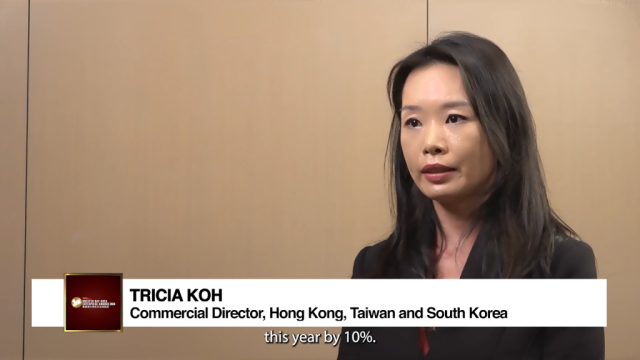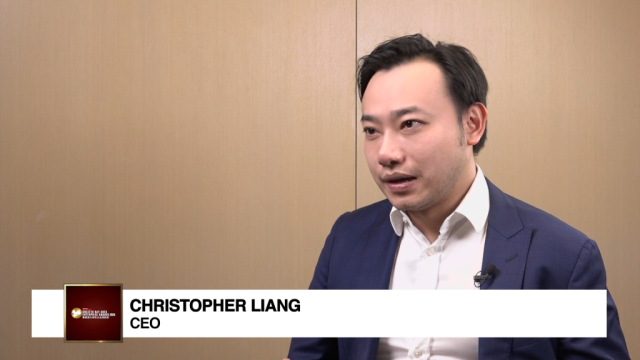 Photo by Kristian on Unsplash
Photo by Kristian on Unsplash
Specialist tech firms to gain major boost in Hong Kong thanks to proposed listing rules
The new regime exempts firms from existing financial eligibility tests under the Listing Rules.
Innovative technology companies in need of funding would often turn away from Hong Kong due to its high-profit threshold for listing and opt for other markets instead. This has affected the city’s competitiveness as a listing venue of choice for these high-growth firms.
To regain its attractiveness and improve fundraising activities, Hong Kong has proposed a new regime where innovative or specialist technology companies will be exempt from existing financial eligibility tests under the Listing Rules.
According to Claudia Yiu, partner, Corporate & Commercial, at Simmons & Simmons Hong Kong, specialist tech firms include those involved in next-generation information technology, advanced hardware, advanced materials, new energy and environmental protection, and new food and agriculture technologies, amongst others.
Under the new regime, specialist tech firms are categorised into two using a commercial revenue threshold of $250m.
Companies that meet the threshold will fall under the “commercial” category, whilst firms that fail to do so will be identified as “pre-commercial” or those which have yet to generate meaningful revenue.
“Commercial companies are those specialist technology companies that have achieved meaningful commercialisation of their products; whereas pre-commercial companies are those that are primarily engaged in R&D to bring their products to commercialisation,” Louis Lau, partner at KPMG China’s Capital Markets Advisory Group, told Hong Kong Business.
Since pre-commercial specialist technology firms do not meet the threshold, they will be subjected to more stringent requirements like higher minimum expected market capitalisation at listing of $15b. To compare, firms categorised as commercial’s minimum expected market capitalisation at listing is only $8b.
Pre-commercial firms will also need to meet a higher proportion of operating expenditure in research and development (R&D) of 50% of total operating expenditure, rather than 15%.
“Pre-commercial specialist technology companies are also required to, amongst other things, demonstrate a credible path to commercialisation, and after listing, to comply with enhanced continuing obligations that are consistent with those imposed on biotech company listings under Chapter 18A,” added Christopher Ma, partner, Corporate & Commercial, at Simmons & Simmons Hong Kong.
Lau said additional or more stringent requirements are applied to pre-commercial companies due to the higher risks associated with it.
Whilst there are differences, there are a number of requirements imposed on both types of specialist technology companies.
The first of these common requirements is that they should “fall within the definition of specialist technology company as defined by the Hong Kong Exchanges and Clearing (HKEX) from time to time.”
Ma said external validation in the form of meaningful third-party investment is also required for both company types.
An example of a meaningful investment is funding from an asset management firm with assets under management (AUM) of at least $15b or key players in upstream or downstream industries.
“There is also an additional free float requirement at listing, which stipulates a minimum market capitalisation of $600m to be free from any disposal restrictions, contractual or otherwise,” said Ma.
Enhanced disclosure requirements and a more robust price discovery process are also imposed on both commercial and pre-commercial companies.
“In particular, the initial allocation and clawback mechanism mandate a higher level of participation from institutional investors as compared with normal listings, with a corresponding reduction in retail participation, with a minimum of 20% retail allocation upon over-subscription of 50 times or more in the public subscription tranche,” Yiu explained.
Enhancing competitiveness
The flexibility offered by the proposed listing rules will allow capital markets to channel much-needed funds into innovative technology companies, according to Lau.
“By expanding the range of companies that can access Hong Kong’s deep, liquid, international markets, this will also offer more investment options for investors, enhancing the competitiveness of the Hong Kong market as a listing venue of choice for innovative companies,” Lau added.
Simmons & Simmons’ Ma had a similar sentiment, saying that increasing the number of innovative companies listed in Hong Kong would help diversify and expand the market offering and present more choices for investment, and would also increase the fundraising activities and trading volume on the Stock Exchange of Hong Kong.
“More importantly, there is strong growth potential in the development of a specialist ecosystem in the industry sectors captured by the proposed regime, which is driven by both policy and market forces,” the expert added.
Ma said the ecosystem would encompass activities such as fundraising, R&D, and advisory services, which in turn, would benefit the financial market activities and the wider surrounding business community, especially financial, legal, accounting, and other professional services as well as industry experts.
Both firms also said the regime would also allow Hong Kong to bridge the Greater China Region with international capital.
“As China continues to invest in strategic emerging industries, firms involved in advanced technology and new energy are facing an increasing demand for funding. With the continual support from the government, specialist technology industries are expected to experience a high-growth era,” Lau said.
“The proposed rules will further bridge the gap by offering a more favourable listing regime for high-growth, emerging companies. This will bring new economy sectors to the fore and further diversify the composition of listed companies in the Hong Kong market,” he added.
Yiu believes that the new regime, once approved, will be effective and successful as it “represents a balance between market competitiveness and quality of listing applicants” similar to the introduction of the three new listing chapters in 2018.
In 2018, HKEX launched its New Listing Regime to allow pre-revenue biotech companies (Chapter 18A), innovative companies with weighted voting rights (WVR) structures (Chapter 8A) and qualified overseas listed companies (Chapter 19C) to list and raise capital in Hong Kong.
“That has helped HKEX in becoming the international bourse of choice for new economy companies,” Yiu said, adding Chapter 18A, specifically, led Hong Kong to become Asia’s largest and the world’s second-largest biotech fundraising hub.
“Since Chapter 18A was launched in April 2018, there have been listings of 52 pre-revenue biotech companies, raising HK$114.8b in total,” Yiu said.
“HKEX’s track record in attracting biotech companies to list here and investors to invest in those companies also provide good credibility and perspective on what can be expected for Specialist Technology Companies,” she added.






















 Advertise
Advertise








